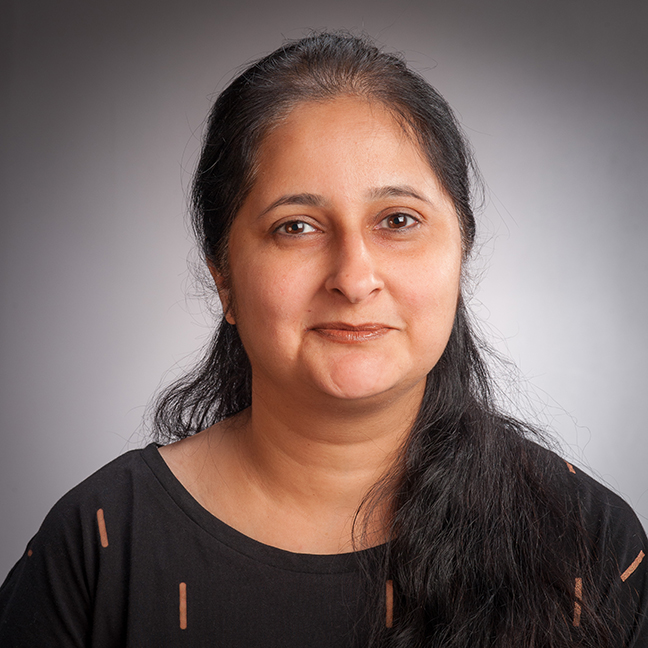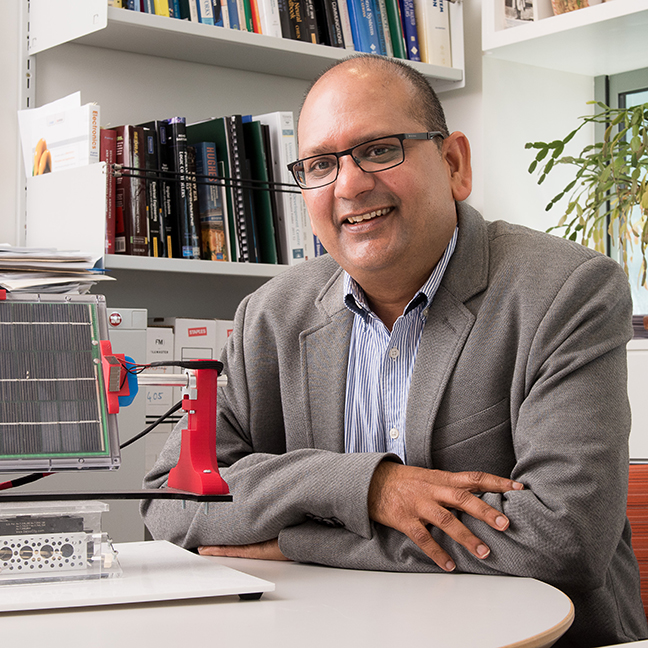Engineering and Computer Science projects
Projects for 2023/2024
Available projects for 2023/2024 are listed below. Click on the project number to see more information.
600—Throughput Optimisation in Low Power IoT Networks
601—Technoeconomic assessment for identifying solutions to decarbonise rural industries
602—Mesh routing for predator detection in thick vegetation
603—Auto-selection of Optimum Transmission Parameters for LoRa
604—Seamless Comms in Unmanned Vehicle Swarms
605—Machine Learning for New Zealand Fish Data Analysis
606—AI in Climate Change: Interpretable Ice Sheet Modeling using Machine Learning
607—Genetic Programming for Symbolic Regression
608—Machine Learning and Computer Vision for Detecting Tree Branches
609—Data Science and Artificial Intelligence for Aquaculture
610—Interpretable Transfer Learning
611—Loss saving of conversion of a low voltage AC system to DC
612—Factors to consider on converting Halcombe Iwi network into a DC network and/or a virtual power plant
613—Wellbeing analysis of Te Ahuru Mowai Renewable energy project data
614—Extracting more electric power from low enthalpy geothermal energy
615—Portable Spectroscopy based Screening Method for Harmful Drug Mixtures Using Machine Learning
600—Throughput Optimisation in Low Power IoT Networks
This summer project will investigate the throughput performance of RPL, a mesh routing protocol designed for specifically for 6LoWPLAN, a low power network protocol stack for the Internet of Things (IoT). The project will involve development and experimentation with low-power IoT devices. The development and experimentation will study the effect of hop-by-hop fragmentation (and reassembly) on the efficiency of RPL in a multihop data transfer scenario. We hypothesise that under appropriate conditions, hop-by-hop fragmentation can surprisingly improve multihop throughput performance due to reduction of intra-path interference. We will then exploit the effect of fragmentation to improve the throughput performance in challenging environmental conditions.
Supervisor
Senior Lecturer in Network Engineering
School of Engineering and Computer Science
601—Technoeconomic assessment for identifying solutions to decarbonise rural industries
Sponsored by GNS Science.
Many of the industries in rural Aotearoa New Zealand are tied to primary industries and support local economies but use large amounts of energy from fossil fuels. The government are encouraging these businesses to transition to renewable alternatives, but with many potential solutions available, some businesses are unsure of which will best suit their specific technical needs for their industry in their region. This project will include technical and economic modelling and analysis of potential solutions to some of these industries decarbonisation problems, to allow evidence-based decision making encouraging uptake of available decarbonisation solutions that will be fit for specific industrial needs of our rural businesses. The successful student will be based at GNS in the Lower Hutt working with Prof Alan Brent, Chair in Sustainable Energy Systems (Victoria University of Wellington) and Dr Michelle Cook, Energy Materials Scientist (GNS). GNS has existing relationships with stakeholders in the Bay of Plenty region including the local government representatives, iwi, and industrial business owners, that will be leveraged to inform the scope and direction of techno-economic analyses - to identify the best potential solutions for industries to decarbonise in the region. The final outcome will be a report.
Supervisor
Professor of Sustainable Energy Systems
School of Engineering and Computer Science
602—Mesh routing for predator detection in thick vegetation
This project is part of the SfTI BioSecurity Technology Spearhead where we aim to design a networking protocol to support the smart sensors used to seek out the last or few remaining predators. The student will be working with the Wireless Networks Research Group staff and postgraduate students on campus. The key task is to extend RPL, a standards-based routing protocol for low-power devices, to work in a mesh network. The student will use simulations and/or actual low-power devices to validate the design and in the latter case, may have to conduct field tests in the outdoors. The desired outcome would be an extended RPL variant that is able to perform peer-to-peer communications across multiple hops in a mesh network.
Supervisor
Professor of Network Engineering · Postgraduate Research Coordinator (ECS and CMIC)
School of Engineering and Computer Science
603—Auto-selection of Optimum Transmission Parameters for LoRa
This summer scholarship project is part of an existing SfTI project whose aim is to eliminate pests within New Zealand by setting up intelligent traps that require long-distance, low-power communication links between one another and multiple devices. In this project, students will be working with the Wireless Networks Research Group staff and postgraduate students to investigate aspects of one such transmission technique known as LoRa which offers a variety of transmission parameters to be configured depending on the desired specifications such as the required transmission distance, error rate, battery consumption, and more. By changing the transmission parameters such as the spreading factors, bandwidth settings, coding rates, and transmission powers, there are thousands of parameter combinations to be selected. It is therefore challenging to determine the optimum set of parameters, but one that is important for the success of a pest-free New Zealand. In this project, the student will investigate and propose an AI-based strategy for the auto-selection of the optimum parameters to fulfil the SfTI project requirements.
Supervisor
Professor of Network Engineering · Postgraduate Research Coordinator (ECS and CMIC)
School of Engineering and Computer Science
604—Seamless Comms in Unmanned Vehicle Swarms
Unmanned Aerial Vehicles (UAVs), commonly referred to as drones are a hugely valuable tool in various public and commercial applications. Examples include agriculture monitoring, aerial photography, surveillance and search and rescue operations. UAVs, however, have certain inherent limitations: short flight time (15 min – 1 hour), limited processing capability and single point of failure. This has recently led to the use of multi-UAV systems for improved scalability and reliability. But at present, the degree of autonomy of multi-UAV systems is very limited.
The objective of this project is to build a framework that may help in increasing the autonomy of multi-UAV systems. The project involves establishing an ad-hoc network of UAVs using Raspberry Pi’s and implementing an impact metric at each node to measure its connectedness quality with the rest of the network. All the resources required including the Drones, Raspberry Pi's and other accessories will be provided.
Supervisor
Lecturer
School of Engineering and Computer Science
605—Machine Learning for New Zealand Fish Data Analysis
In New Zealand, 60% of every fish caught is processed to low-value ($2 NZ kg-1) fish oil and fish meal, usually for inclusion in animal feeds – a terrible waste of one of Earth’s limited resources. A research programme led by the NZ Institute for Plant and Food Research, in collaboration with Callaghan Innovation, Victoria University of Wellington, Otago and Deakin, is now seeking to change that. The research team is designing a ‘factory of the future’ inspired by ‘Industry 4.0’, which will process every kilogram of fish into high-value products. To do this we first need to be able to measure the composition of every (and any) mixture of marine biomass in minutes instead of days. This is an exciting opportunity to be part of a highly collaborative research programme spanning NZ and Australia.
An excellent student who has strong Python and COMP307/COMP309 background is required. The student/scholar will be located in the Kelburn Campus of VUW. The successful scholar/student will be working with Professors Bing Xue and Mengjie Zhang at CDSAI, Victoria University of Wellington as well as Dr Daniel Killeen from Plant and Food Research. The expected project outcome includes analysis of results, implementation of machine learning methods and a project report.
Supervisor
Deputy Head of School, Engineering and Computer Science
School of Engineering and Computer Science
606—AI in Climate Change: Interpretable Ice Sheet Modeling using Machine Learning
Climate change is causing sea levels to rise significantly, which considerably influences the human economy and species' living. One of the direct mechanisms that contribute to the observed sea level rise is the melting of land ice. It is vital to gain insight into how the ice sheet changes in the future. Numerical models have been used to predict how fast ice sheet is melting. These models are based on complex physical numerical models with numerous complex differential equations. It is computationally expensive and time-consuming. This project will investigate interpretable machine learning models that can predict ice sheet change effectively and efficiently.
An excellent student who have strong Python and COMP 307/COMP 309 background is required. The student/scholar will be located in the Kelburn Campus of VUW. The successful scholar/student will be working with Professors Bing Xue, Mengjie Zhang, and Bach Nguyen from Centre of Data Science and Artificial Intelligence and Professsor Nick Golledge from Antarctic Research Centre, Victoria University of Wellington.
Supervisor
Deputy Head of School, Engineering and Computer Science
School of Engineering and Computer Science
607—Genetic Programming for Symbolic Regression
Discovering a meaningful symbolic expression that explains given data is a fundamental challenge in many real-world applications. Genetic Programming for Symbolic Regression (GPSR) seeks to find the optimal model(s) to describe the relationship between output variable(s) and input variables for a set of data without requiring any assumption on data distribution or model structure. But this is also very challenging due mainly to the large search space. Current fitness functions and search methods of GP are still limited and provide unsatisfactory generalisation performance for large-scale, complex SR problems. This project aims to develop a new GP approach with novel fitness functions and advanced search mechanisms that can deal with the above limitations and enhance the generalisation of GPSR models. A good background in Artificial Intelligence (COMP 307) or Machine Learning techniques (COMP 309), Python programming is preferred. In the project, students can not only learn the state-of-the-art machine learning techniques but also learn how to do research, which is important for their future study, e.g. the Honours program and the PhD program. During this process, students will also learn how to produce a paper and submit it to an international conference.
Supervisor
Lecturer - Artificial Intelligence
School of Engineering and Computer Science
608—Machine Learning and Computer Vision for Detecting Tree Branches
This project seeks an excellent summer scholar from current year-3 and year-4 students in Artificial Intelligence, Computer Science, and Software Engineering with AI specialisation to carry out research in AI and machine learning and computer vision for automatically detecting the unwanted branches of big trees for the drones to take and cut them so that the trees can grow quickly in an expected way. This will need to adopt and develop new computer vision techniques using neural networks and genetic programming for quickly and accurately detect the intersections of the tree branches and the trunk of the tree. Current research has successfully detected those main stems/branches for the pine trees under good weather and a smooth environment. This project will explore and develop new AIML techniques for improving performance and finding good solutions for other tree species in noisy environments.
A good background in Python programming and COMP307/COMP309 is required. A good background in statistics/optimisation would be preferred. The successful scholars/students will be working with Professors Bing Xue and Mengjie Zhang in the Centre for Data Science and AI. The student/scholar will be located at Victoria University of Wellington, and is expected to generate/submit a paper from their work.
Supervisor
Director, Centre of Data Science and Artificial Intelligence
Centre for Data Science and Artificial Intelligence
609—Data Science and Artificial Intelligence for Aquaculture
This large project seeks 5 excellent summer scholars from current year-3 and year-4 students in Artificial Intelligence, Data Science, Computer Science and Software Engineering with AI specialisation, and (Applied) Statistics to carry out research in data science and AI for the New Zealand aquaculture industry. The successful scholars/students will use and develop different kinds of DSAI, machine learning and computer vision algorithms and techniques to support decision-making in the New Zealand aquaculture industry for responding to climate challenges, managing fish disease, improving fish production yields and fish farming sustainably at scale. These include intelligent/statistical modelling, deep learning and transfer learning, image processing and analysis, evolutionary and multi-objective decision-making, and interpretable AI and visualisation. We expect this to enable the aquaculture industry to efficiently produce high-quality, low-carbon protein for New Zealand without compromising the environment.
A good background in Python programming and COMP307/COMP309 is required. A good background in statistics/optimisation would be preferred. The successful scholars/students will be working with one of the experienced supervisors in the Centre for Data Science and AI: Mengjie Zhang, Ivy Liu, Bing Xue, Richard Arnold, Yi Mei, Bin Nguyen and Harith Al-Sahaf. The students/scholars will be located at Victoria University of Wellington, and are expected to generate/submit a paper from their work.
Supervisor
Director, Centre of Data Science and Artificial Intelligence
Centre for Data Science and Artificial Intelligence
610—Interpretable Transfer Learning
Transfer learning is a machine learning technique in which a model developed for a specific task is reused as the starting point for a model on a second task. It's based on the idea that knowledge acquired while solving one problem can be applied to a different but related problem. Transfer learning is especially valuable when you have limited data for the new task because it allows you to leverage the knowledge captured by a model trained on a larger, related dataset. However, most existing transfer learning methods cannot explain how or why knowledge is transferred between different tasks. This project aims to investigate interpretable transfer learning models that seek to understand the process of knowledge transfer.
We are seeking an exceptional student with a strong background in Python and COMP 307/COMP 309. The student or scholar will be located at the Kelburn Campus of Victoria University of Wellington and will collaborate with Dr Bach Nguyen and Professor Bing Xue from the Center of Data Science and Artificial Intelligence, Victoria University of Wellington.
Supervisor
Lecturer in Artificial Intelligence
School of Engineering and Computer Science
611—Loss saving of conversion of a low voltage AC system to DC
Sponsored by the University of Canterbury.
The aim of this project is to obtain an estimate of the potential savings that will be achieved by conversion from AC to DC in a distribution system. It is envisaged that a bottom up approach will be performed. This means first of all looking at individual items of equipment and evaluating the loss in the conversion stage and benefits of moving to DC. For many items of equipment an additional DC/DC converter will be needed as the electronic controls needs 5V while the main stages will require a higher voltage (for example 320 V DC), and this must be considered. The typical array of household appliances can then be selected to obtain the saving is a typical home.
Supervisor
Deputy Head of School, Engineering and Computer Science
School of Engineering and Computer Science
612—Factors to consider on converting Halcombe Iwi network into a DC network and/or a virtual power plant
Sponsored by the University of Canterbury.
This project extends the summer work performed in 2022 on developing a power factory model of the local distribution network to develop a virtual power plant and find an optimal location of the battery in the network. As an extension of the project, this summer project will perform in following two (or either) ways:
- Analyse the network and configure the required changes needed to transform the network into a DC network. The work needs analysing the network components and identifying the required changes to transform the present LVAC network to LVDC network.
- Combining the sensors from renewable energy network with the Powerfactory model to develop a virtual power plant. The outcome of this part would be a SCADA/EMS like system that provides (near) realtime power interactions at the Iwi/Marae areas of interest.
Supervisor
Deputy Head of School, Engineering and Computer Science
School of Engineering and Computer Science
613—Wellbeing analysis of Te Ahuru Mowai Renewable energy project data
Sponsored by the University of Canterbury.
This is a data analysis project. The purpose of this project is to analyse the data acquired from some solar installed homes and investigate the effect of installing solar panels in home and their relation to the resident well-being. A good knowledge of data analysis and business intelligence is needed for the project.
Supervisor
Deputy Head of School, Engineering and Computer Science
School of Engineering and Computer Science
614—Extracting more electric power from low enthalpy geothermal energy
The project is about investigating ways to improve the current generation technology and identifying ways to improve the energy generation in a low enthapy geothermal resource. The successful student will perform activities around ORC based power generation unit and perform some experiments to investigate the cycle efficiencies.
Supervisor
Deputy Head of School, Engineering and Computer Science
School of Engineering and Computer Science
615—Portable Spectroscopy based Screening Method for Harmful Drug Mixtures Using Machine Learning
Sponsored by Institute of Environmental Science and Research (ESR).
Illicit drugs are often mislabelled or adulterated, which can pose a serious risk to users. Adverse reactions to these substances can lead to hospitalisation or even be fatal, putting unnecessary pressure on health services in New Zealand. Portable NIR spectroscopy solutions like LumiTM Drug Scan have been successfully developed for illicit drug identification. However, accurately determining the cutting agents and other harmful adulterants is a problem which has not been explored sufficiently. Though target drugs are limited, the number of harmful adulterants could be many and might be in smaller concentration than the main illicit drug. This makes model development challenging as identifying the weaker characteristics of spectra from a portable device corresponding to the harmful components would require feature engineering techniques developed using inter-disciplinary research across NIR spectroscopy, drug chemistry and machine learning. Furthermore, to develop a responsible machine learning model, explainability is a key criterion. This project provides ample opportunities to learn and hone skills while building a solution in industry under research-focussed environment. A student with background in chemistry and statistical/machine learning (COMP309 or AIML429) is required. This project will provide an opportunity to learn from experts in different fields, viz. Forensics, Drug Chemistry, Data science, MLOps.
Supervisor
Lecturer - Artificial Intelligence
School of Engineering and Computer Science









